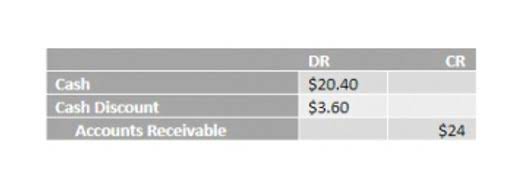
Since the actual goods or services haven’t yet been provided, they are considered liabilities, according to Accountingverse. As businesses evolve and transactions become more intricate, grasping concepts like unearned revenue becomes even more crucial in painting a true picture of an organization’s financial health. For small businesses, especially those operating on thin margins, understanding the future revenue stream is crucial. Unearned revenue, being a significant indicator of future income, plays a pivotal role in both short-term and long-term planning. It’s important to track and monitor this data over time to ensure that the cash flow statement properly reflects financial performance. As such, it’s important to track this data in order to ensure that the income statement accurately reflects your business’s financial performance.
- The most basic example of unearned revenue is that of a magazine subscription.
- For help creating balance sheets that can track unearned revenue, consider using QuickBooks Online.
- For example, a contractor might use either the percentage-of-completion method or the completed contract method to recognize revenue.
- The liability is reduced as the company fulfills its obligations, and the revenue is recognized in the income statement.
- Unearned revenue is recorded on the income statement as a deferred income, which is a liability-like account.
Service and Subscription Models
Unearned Sales results in cash exchange before revenue recognition for the business. Usually, this unearned revenue on the balance sheet is reported under current liabilities. However, if the unearned is not expected to be realized as actual sales, then it can be reported as a long-term liability. The most basic example of unearned revenue is that of a magazine subscription. When we register for an annual subscription of our favorite magazine, the sales received by the company is unearned. As they deliver magazines each month, the company keeps on recognizing the corresponding income in the income statement.

Why Is Deferred Revenue a Liability?
In summary, unearned revenue is an asset that is received by the business but that has a contra liability of service to be done or goods to be delivered to have it fully earned. This work involves time and expenses that will be spent by the business. And this is a piece of information that has to be disclosed to complete the image about the financial situation at that moment in time. Sometimes businesses take an advance payment on a good or service meaning they’ve been paid upfront and now they need to fulfill their end of the deal. In some cases, the business needs to reflect this in their accounting.
Customer Service
That’s considered unearned revenue, and there’s a special way to record it. Because the membership entitles Sam to 12 months of gym use, you decide to recognize $200 of the deferred revenue every month—$2,400 divided by 12. Revenue in cash basis accounting is reported only after it’s been received. Expenses in cash basis accounting are recorded only when they’re paid as well. Due to its short-term nature, deferred revenue is often expected to satisfy within the next year.

However, understanding how unearned revenue impacts the books and customer relationships is key to making the most out of this financial component. Accrual accounting records revenue for products or services that have been delivered before payment has been received. This is the opposite of deferred revenue in a way, that records revenue for services or products yet to be delivered. Accrual accounting records revenue for payments that have not yet been received for products or services already delivered. Yes, unearned revenue is usually listed as a current liability on your balance sheet. This reflects the fact that this form of revenue functions as a debt to a client or customer until you deliver the product or service they have paid for.
- A company should clearly disclose unearned revenue within its financial statements, typically as a part of the balance sheet.
- As a result, the completed-contract method results in lower revenues and higher deferred revenue than the percentage-of-completion method.
- Whether you have earned revenue but not received the cash or have cash coming in that you have not yet earned, use Baremetrics to monitor your sales data.
- Before you can record your unearned revenue, you’ll have to know how much unearned income your company has.
Want More Helpful Articles About Running a Business?
- In accrual accounting, a liability is a future financial obligation of a company based on previous business activity.
- James pays Beeker’s Mystery Boxes $40 per box for a six-month subscription totalling $240.
- In either case, the company would repay the customer, unless other payment terms were explicitly stated in a signed contract.
- However, a business owner must ensure the timely delivery of products to its consumers to keep transactions steady and drive customer retention.
- Various adjustments and corrections may also be required as the company continues to provide the goods or services it has received payment for and gradually “earns” the revenue.
- While you have the money in hand, you still need to provide the services.
- A service retainer is paid as part of a service agreement, in which your business agrees to provide a specific level of service at a negotiated rate.
Give us a try and see how easy handling your business finances can be. Unearned sales are most significant in the January quarter, where most of the large enterprise accounts buy their subscription services. Why then does your pre-paid membership create a liability for the company? If the gym is unearned revenue a current liability burned down in May and you could no longer go to the gym, the company would be “liable” to you for the remaining 7 months of membership dues that you paid for but did not get to use. At Bench, we work with you to ensure your financial reporting needs are met while keeping you IRS compliant.
- Deferred revenue, which is also referred to as unearned revenue, is listed as a liability on the balance sheet because, under accrual accounting, the revenue recognition process has not been completed.
- Cash basis accounting is an accounting method whereby income and expenses are recognized only when cash is exchanged.
- As such, the Unearned Revenue is a Liability till the time it doesn’t completely fulfill the same, and the amount gets reduced proportionally as the business is providing the service.
- The unearned revenue account will be debited and the service revenues account will be credited the same amount, according to Accounting Coach.
- Your business will need to credit one account and debit another account with the correct amounts using the double-entry accounting method.
- In such cases, the unearned revenue will appear as a long-term liability on the balance sheet.
- We do this by automatically importing all of your business transactions into our platform for your personal bookkeeper to categorize and review.
What Deferred Revenue Is in Accounting, and Why It’s a Liability
An example of deferred revenue is a retainer fee charged by law firms. When a legal practice charges a new client a $10,000 retainer fee, it isn’t immediately recorded as revenue in its books. It records it as deferred revenue first, and only records $10,000 in revenue after the entire retainer fee has been earned. Your income statement should not record unearned revenue until it becomes ‘earned’ revenue when the service or product is delivered. These adjustments and corrections help ensure that financial statements of a business accurately reflect its revenue and liabilities.
Unearned revenue, also known as deferred revenue or prepaid revenue, refers to the payments received by a company for goods or services that are yet to be delivered or provided. It is recorded as a liability on the company’s balance sheet because the company owes the delivery of the product or service to the customer. Examples of industries dealing with unearned revenue include Software as a Service (SaaS), subscription-based products, airline tickets, and advance payments for services. When a company receives payment for products or services that have not yet been delivered, it records an entry of unearned revenue.


